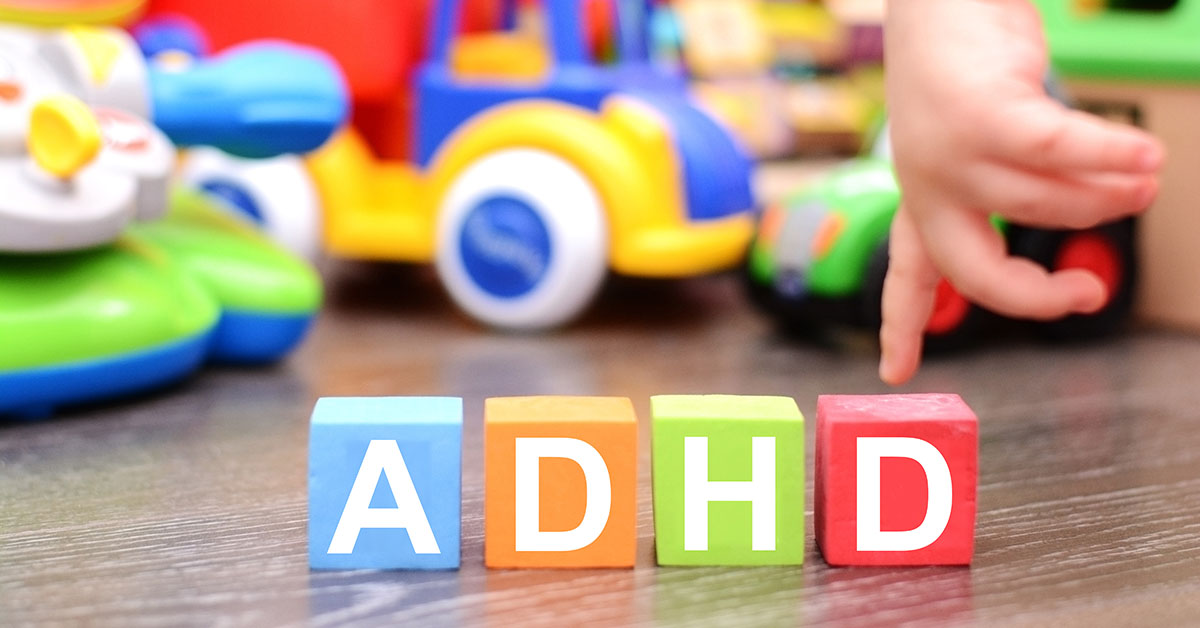 Kernodle Clinic - A DukeMedicine PRACTICE
Kernodle Clinic - A DukeMedicine PRACTICE
- Burlington 336-538-1234
- Mebane 919-563-2500
- Elon Family 336-538-2314
- Elon Pediatrics 336-538-2416
Does My Child Need an ADHD Screening?

Attention-Deficit Hyperactivity Disorder, or ADHD, is a behavioral disorder that can affect both children and adults. It is most commonly diagnosed in children. According to the Centers for Disease Control (CDC), 6.1 million US children have been diagnosed with ADHD as of 2016. This makes it one of the most common neurodevelopmental disorders of childhood.
Children with ADHD exhibit inattentive, impulsive, or hyperactive behaviors. But because all children behave in these ways from time to time, how do you know if they have ADHD? If you have concerns, ask your child’s pediatrician about an ADHD screening. The doctor can go over the signs and symptoms of ADHD with you as well as explain the methods they will use to make a diagnosis.
Signs & Symptoms of ADHD
The signs and symptoms of ADHD are usually split into two categories: inattentive symptoms and hyperactive-impulsive symptoms.
Inattentive Symptoms
A child who has problems with inattention:
- Has difficulty staying focused on tasks or play
- Easily distracted
- Makes careless mistakes in schoolwork
- Doesn’t show attention to detail
- Has trouble with organizing tasks
- Appears not to listen even when being directly spoken to
- Avoids tasks that require focused mental effort like schoolwork
- Frequently loses things like toys and school assignments
Hyperactive-Impulsive Symptoms
A child that struggles with hyperactivity and impulsivity:
- Fidgets or squirms in a seat
- Has trouble staying seated
- Interrupts others conversations or activities
- Talks excessively
- Is always moving
- Has difficulty with quiet activities
- Runs around or climbs all the time
- Has trouble waiting his or her turn
- Calls out answers without being called on, sometimes interrupting the question
When to Talk to the Pediatrician
All children are impulsive, hyperactive, and inattentive at times. That’s their nature. They generally have more energy than their parents, have short attention spans (especially if the subject is uninteresting), and may still be learning about impulse control. However, if your child exhibits the above symptoms and they are interfering with their school performance, interpersonal relationships, self-esteem, and home life, then you may want to contact your child’s pediatrician to ask about ADHD testing and screening. The pediatrician will either perform the ADHD screening themselves or refer you to a specialist for screening.
What Does an ADHD Screening Involve?
There is no one test used to diagnose ADHD, but most screening processes will involve:
- Getting a comprehensive medical history by looking at the child’s medical records and getting details on family medical history.
- A medical examination to rule out other developmental or medical conditions that may be causing symptoms.
- Interviews of parents, teachers, and the child to gather information on symptoms.
- ADHD rating scales that help the doctor determine the severity of the disorder as well as how long it has been present.
The pediatrician or specialist will use diagnostic criteria from a medical manual called the DSM-5. Children must meet a certain number of criteria based on their age to be diagnosed with ADHD. If your child is given a diagnosis after an ADHD screening, they may also be diagnosed with a subtype. There are three different subtypes of ADHD based on which symptoms are strongest in the child:
- Predominantly Inattentive Presentation: The majority of symptoms exhibited by the child relate to inattention.
- Predominantly Hyperactive-Impulsive Presentation: The majority of the symptoms exhibited by the child are hyperactive or impulsive.
- Combined Presentation: The child exhibits a mix of hyperactive-impulsive and inattentive symptoms.
Based on the diagnosis, your doctor and/or a behavioral specialist will come up with a treatment plan. ADHD cannot be cured, but the symptoms can be managed through behavioral therapy and medication. The earlier a child is diagnosed and treated, the more successful the treatment will be. So, if you have concerns, don’t hesitate to consult your child’s pediatrician. At Kernodle Pediatrics, our board-certified physicians are qualified to perform ADHD testing for our patients. If you have concerns about your child’s health or questions about screenings, call us at (336) 538-2416 (Elon) or (919) 563-2500 (Mebane) to make an appointment.
